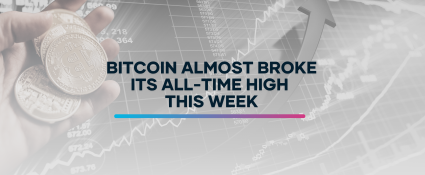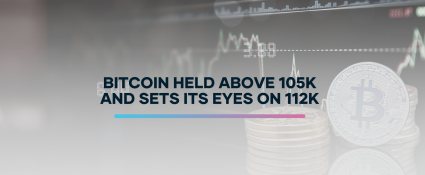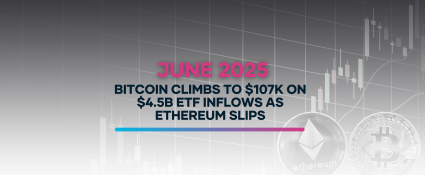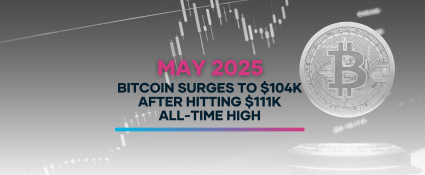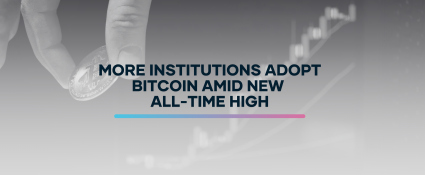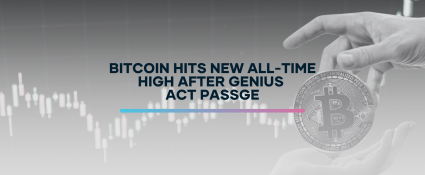Bitcoin Price: US$ 30,692.44 (+1.40%)
Ethereum Price: US$ 1,889.58 (+1.65%)
The Grayscale Bitcoin Trust (GBTC) experienced a significant surge in its share price, reaching a one-year high. This rally was triggered by reports suggesting that investment asset manager Fidelity Investments plans to follow BlackRock’s application for a bitcoin exchange-traded fund (ETF) with its own proposal, renewing hopes of converting the trust into an ETF. GBTC closed at $19.47, marking its highest closing price since June of the previous year. Despite Bitcoin’s relatively stable trading, with a brief spike to $31,000 following the Fidelity news, GBTC’s share price exhibited a discount of 30% relative to its net asset value. This level of discount was last observed in September of the previous year. The recent surge in GBTC’s price can be attributed to BlackRock’s filing in mid-June, as well as the reapplications by Invesco and WisdomTree to offer spot BTC ETFs. GBTC has gained nearly 50% in less than two weeks since BlackRock’s application. Concurrently, while Bitcoin’s spot markets have shown signs of consolidation, the Commitment of Traders (COT) report reveals an increased appetite for long positions in derivative markets. Asset managers have bolstered their open long positions, and leveraged funds have followed suit, with the rise in long positions reflecting market dynamics and the potential approval of a spot bitcoin ETF. The options open interest put/call ratio indicates a higher demand for buying than selling, suggesting that investors are not inclined to sell during the recent rally. Additionally, the first leveraged cryptocurrency ETF in the U.S., Volatility Shares 2x Bitcoin Strategy (BITX), commenced trading, accumulating approximately $4.2 million in trading volume since its debut. The ETF’s initial trading activity was notable, with around $500,000 worth of shares traded in the first 15 minutes. The SEC’s decision to allow the ETF’s effectiveness paved the way for its launch, while spot-based products have faced regulatory hurdles. Other leveraged bitcoin futures products have also struggled to obtain necessary approvals.
Tezos, the blockchain platform, has implemented its fourteenth upgrade called “Nairobi,” resulting in transaction speeds up to eight times faster than before. This enhancement follows the previous “Mumbai” upgrade, which had increased transaction processing capability to 1 million transactions per second. The Nairobi upgrade introduces a new fee mechanism that charges users based on network usage, rather than a fixed flat fee. Additionally, Nairobi enables the continuous and automatic upgrading of Tezos’ scaling tool, Smart Rollups, with future deployments. Despite these improvements, Tezos’ current network usage remains relatively low compared to other popular blockchains. In other news, Worldcoin has been identified as the cause of numerous deployments to the Optimism network. These deployments, which raised speculation and concerns on social media, were related to the use of Safes for gas-free transactions and the migration of Worldcoin’s app. Furthermore, EDX, a recently launched cryptocurrency exchange supported by major financial players, including Citadel Securities, Fidelity Digital Assets, and Charles Schwab, is reportedly planning to switch its custody services from Paxos Trust to Anchorage Digital. The move comes as EDX adopts a noncustodial business model to eliminate conflicts of interest. The exchange currently supports trading in Bitcoin, Ether, Litecoin, and Bitcoin Cash, with BCH experiencing significant price gains since EDX’s launch.
According to a report by De.Fi, over $204 million was lost in decentralised finance (DeFi) hacks and scams during the second quarter of 2023. The report, based on data from De.Fi’s “Rekt Database,” revealed that there were 117 incidents in Q2, marking an almost seven-fold increase compared to the same quarter in 2022 when there were only 17 incidents. However, $4.5 million was recovered through prosecutions, deals with hackers, and other recovery methods out of the initial $208.5 million lost. The top five hacks of the quarter targeted Atomic Wallet, Fintoch, MEV-Boost, Bitrue, and GDAC, with the Atomic Wallet exploit alone responsible for $35 million of the losses. Additionally, Web3 firms in Hong Kong are reportedly spending between $2.55 million and $25.5 million to acquire Virtual Asset Service Provider (VASP) licenses, with exchanges like OKX, BitgetX, HashKey Pro, OSL, and Gate.io already operating in the region. Meanwhile, Australian banks are defending their restrictions on crypto exchange payments, citing the high percentage of scams associated with cryptocurrencies. The managing director of blockchain and digital assets at Commonwealth Bank highlighted that one in three dollars scammed from Australians is linked to crypto, while data from the Australian Financial Crimes Exchange suggests that the figure may be as high as 40%.
Binance Australia’s regional manager, Ben Rose, revealed that the exchange’s team received only 12 hours’ notice before being “cut off” from Australia’s banking system. The suspension of Binance Australia’s dollar services occurred on May 18 after its payments provider, Zepto, was instructed by Cuscal, Zepto’s partner banking and payments provider, to stop supporting Binance. This sudden move affected approximately 1 million customers in Australia. The reasons for the debanking were not entirely clear, but Cuscal pointed to crypto-related scams and fraud as potential factors. Shortly after Cuscal’s action, major Australian banks such as Westpac and Commonwealth Bank also implemented measures to block payments to crypto exchanges. In other news, a federal judge denied the motion by Sam Bankman-Fried, co-founder of FTX, to dismiss or sever most of the criminal charges he faces. Bankman-Fried is facing over 100 years in prison if convicted on all counts, including fraud-related charges related to the alleged use of customer assets for failed investments. Additionally, Bitfinex has launched a peer-to-peer exchange in Argentina, Venezuela, and Colombia, offering trading in cryptocurrencies such as Bitcoin, Ether, USDT, EURT, and Tether Gold. This move aims to fill the void left by the closures of P2P exchanges LocalBitcoin and Paxful in those regions.
Source:
https://coindesk.com
https://cointelegraph.com
https://decrypt.co
https://theblock.co
Disclaimer: The following summaries are provided for informational purposes only and are not intended to infringe upon any copyrights. All rights to the original content belong to their respective owners, and the summaries are intended to provide a brief overview of the content. If you are the owner of any of the content summarised here and have concerns about its use, please contact us to discuss the matter further.

